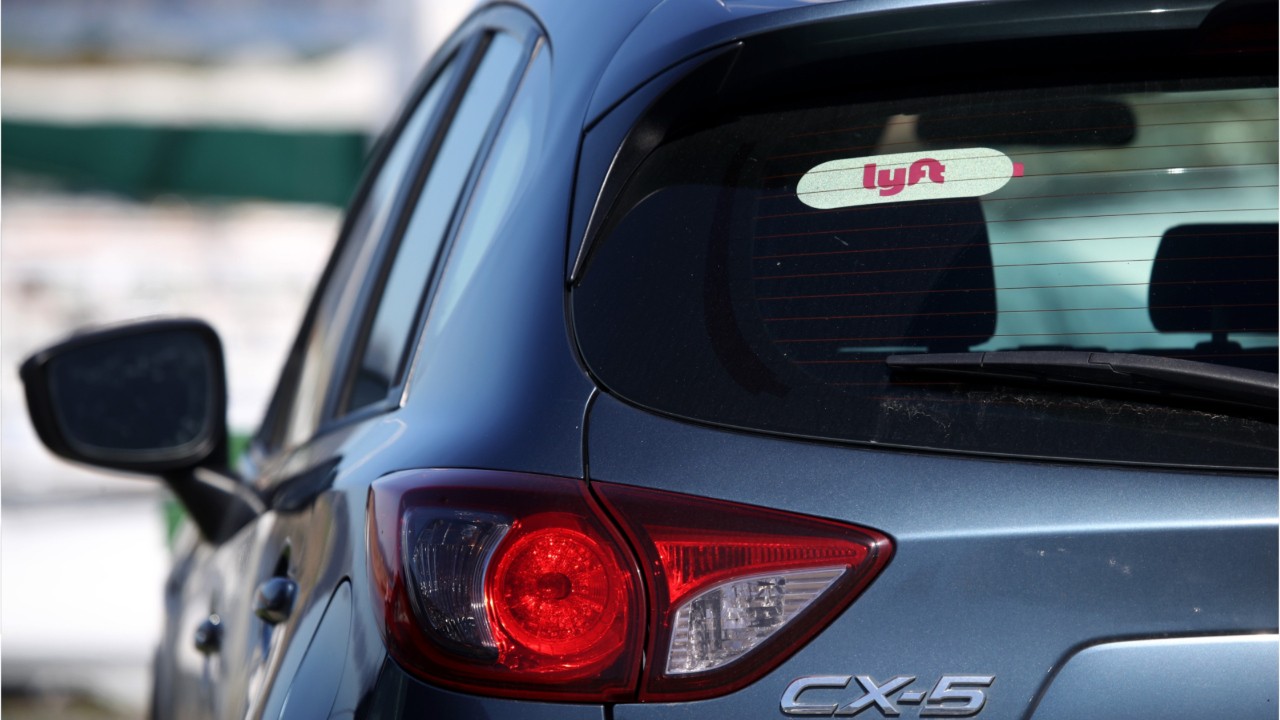20 more women come forward in lawsuit alleging rape, sexual assault while using Lyft

New lawsuit filed against Lyft after 20 more women come forward alleging rape, sexual assault by drivers
The lawsuit, filed by attorneys in San Francisco Superior Court, comes shortly after a September complaint filed on behalf of 14 women alleging they had been sexually assaulted or raped by Lyft drivers.
SAN FRANCISCO - Twenty more women are suing Lyft, alleging that they were raped or sexually assaulted by drivers while using the service, adding to a slew of legal complaints against the company from passengers who say they were targeted by drivers.
The lawsuit, filed by attorneys in San Francisco Superior Court, comes shortly after a September complaint filed on behalf of 14 women who alleged they had been sexually assaulted or raped as a result of Lyft letting “sexual known predators” work as drivers for the ride-share app. The complaint argues that safety oversights at Lyft led to reports of sexual assault.
RELATED: Lawsuit: 14 women accuse Lyft of failing to protect them from rape, sexual abuse
In the newest suit, filed by attorneys from Estey & Bomberger, 20 additional women have come forward alleging that they were raped or sexually assaulted by Lyft drivers. Six of the plaintiffs are named.
One of the women alleges that she fell asleep in the back seat and woke up later to find her Lyft driver on top of her. Another woman alleges that her driver pressured her to drink tequila before he assaulted her.
The lawsuit details the extreme measures that some women went to in order to deter their assailants. The suit alleges that one woman urinated in the back seat of her driver’s car to get him to stop sexually assaulting her, while another alleges she resorted to saying she had HIV.
Attorneys argue that Lyft should be responsible for the medical costs incurred by the victims from these incidents, claiming that passengers are not given proper warning about the risks of using the service and that drivers are not adequately screened in an attempt to prioritize profits over safety.
In April, Lyft announced it would drop terms of service that restricted victims of sexual assault from filing lawsuits against the company. Prior to this, Lyft had included terms of service in their app to force victims of sexual assault to settle cases in mandatory arbitration. This meant that victims could not sue Lyft until earlier this year.
Now an increasing number of women are coming forward with tales of alleged sexual assault and rape.
RELATED: Lyft driver charged with raping intoxicated passenger at his Tracy home
Laurel Simes of Levin Simes and Abrams told The Recorder that her firm gets about five to 10 new calls each week from people alleging that they were sexually harassed or assaulted at the hands of ride-sharing drivers. She said that many riders use Lyft after going out drinking — something that’s supposed to be a safe choice.
“Oftentimes, the person gets out of the car, and the driver says, ‘You seem to be unsteady on your feet. Let me walk you to your door,’” Simes said. “And then they muscle their way inside and all hell breaks loose.”
Attorney Mike Bomberger said after filing the September complaint that he wants Lyft to require fingerprinting of drivers, as well as cameras inside vehicles and a panic button within the app that riders can access in a crisis.
The newest lawsuit also points to a lack of significant follow-up in its complaint, saying that Lyft often “does not tell the victim what steps Lyft conducts in an investigation, does not tell the victim if there have been other allegations against the same driver, and does not tell the victim whether the driver has been removed from the platform.”
“Lyft riders who report sexual harassment or sexual assault to Lyft’s Trust & Safety Team are often left feeling no better off than had they not reported at all,” the lawsuit says.
Lyft says it has been working on new security measures, including a partnership with safety and security company ADT to develop new security features intended to provide riders with peace of mind.
“Users will be able to signal to ADT that they are in need of assistance, via an ADT-powered feature in the Lyft app,” Lyft explained in a blog post. “A user will then be connected to one of ADT’s owned and operated monitoring centers, where an ADT security professional will alert authorities as needed so they can arrive at the user's location, equipped with detailed incident information.”
While having a way to signal that something is going wrong during a ride seems one promising way to reduce the incidence of assaults perpetuated by drivers against their passengers, it’s still in the works — the first pilot of these new features won’t be implemented until early 2020.
In a statement following the September lawsuit filing, Lyft said, “What the victims describe is terrifying... we hold ourselves to a higher standard by designing products and policies to keep out bad actors."
Lyft said that drivers are screened for criminal and driving offenses before being allowed to pick up rides on the app and that it continues to monitor criminal offenses and background checks of drivers on the app.
This story was reported from Los Angeles.

